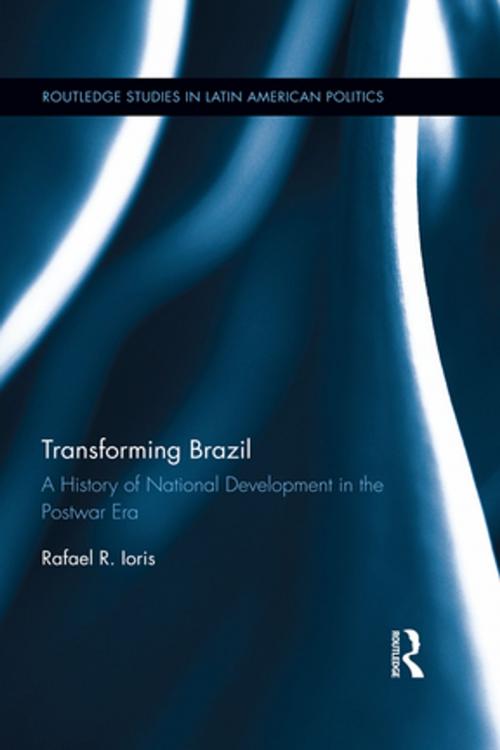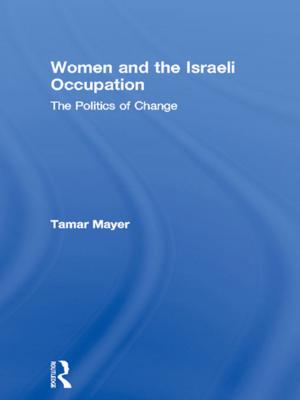Transforming Brazil
A History of National Development in the Postwar Era
Nonfiction, Social & Cultural Studies, Political Science, Politics, Practical Politics, History & Theory| Author: | Rafael R. Ioris | ISBN: | 9781317680024 |
| Publisher: | Taylor and Francis | Publication: | May 9, 2014 |
| Imprint: | Routledge | Language: | English |
| Author: | Rafael R. Ioris |
| ISBN: | 9781317680024 |
| Publisher: | Taylor and Francis |
| Publication: | May 9, 2014 |
| Imprint: | Routledge |
| Language: | English |
In this book, Rafael R. Ioris critically revisits the postwar context in Brazil to reexamine traditional questions and notions pertaining to the nature of Latin America’s political culture and institutions. It was in this period that the region lived some of its most intense and successful experiences of fast economic growth, which was paradoxically marred by heightened ideological divisions, political disruptions, and the emergence of widespread authoritarian rule.
Combining original sources of political, diplomatic, intellectual, cultural, and labor histories, Ioris provides a comprehensive history of the fruitful debates concerning national development in postwar Brazil, a time when the so-called country of the future faced one of its best moments for consolidating political democracy and economic prosperity. He argues that traditional views on political instability have been excessively grounded on an institutional focus, which should be replaced by in-depth analysis of events on the ground. In so doing, he reveals that as national development meant very different things to multiple different social segments of the Brazilian society, no unified support could have been provided to the democratically elected political regime when things rapidly became socially and politically divisive early in the 1960s.
Innovating in its multidimensional analytical scope and interdisciplinary focus, Transforming Brazil provides a rich political, cultural, and intellectual examination of a historical period characterized by rapid socio-economic changes amidst significant political instability and the heightened ideological polarization shaping the political scenario of Brazil and much of Latin America in the Cold War era.
In this book, Rafael R. Ioris critically revisits the postwar context in Brazil to reexamine traditional questions and notions pertaining to the nature of Latin America’s political culture and institutions. It was in this period that the region lived some of its most intense and successful experiences of fast economic growth, which was paradoxically marred by heightened ideological divisions, political disruptions, and the emergence of widespread authoritarian rule.
Combining original sources of political, diplomatic, intellectual, cultural, and labor histories, Ioris provides a comprehensive history of the fruitful debates concerning national development in postwar Brazil, a time when the so-called country of the future faced one of its best moments for consolidating political democracy and economic prosperity. He argues that traditional views on political instability have been excessively grounded on an institutional focus, which should be replaced by in-depth analysis of events on the ground. In so doing, he reveals that as national development meant very different things to multiple different social segments of the Brazilian society, no unified support could have been provided to the democratically elected political regime when things rapidly became socially and politically divisive early in the 1960s.
Innovating in its multidimensional analytical scope and interdisciplinary focus, Transforming Brazil provides a rich political, cultural, and intellectual examination of a historical period characterized by rapid socio-economic changes amidst significant political instability and the heightened ideological polarization shaping the political scenario of Brazil and much of Latin America in the Cold War era.















